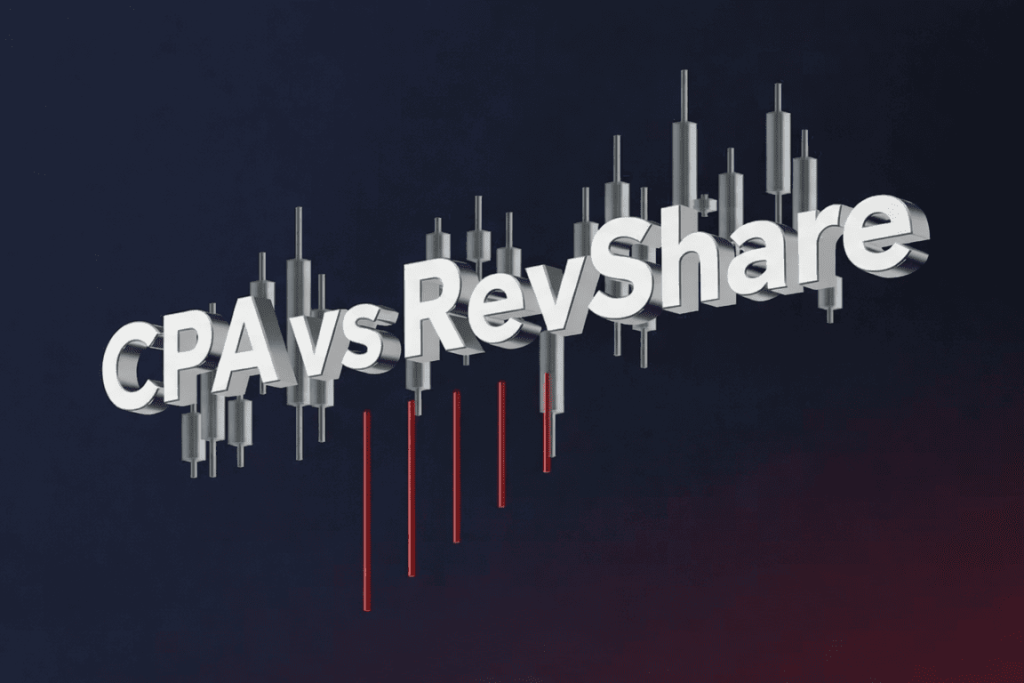Back
Contents
What is a Prop Firm Challenge?


Vitaly Makarenko
Chief Commercial Officer

Demetris Makrides
Senior Business Development Manager
The prop firm challenge is a program provided by proprietary trading businesses that tests a trader’s abilities and discipline by requiring them to trade with virtual money under certain rules and circumstances. Completing the challenge successfully gives traders access to the capital of the company, therefore enabling them to trade more than they could have with personal resources and participate in the profits produced. For traders hoping to advance their trading careers, a major step is engaging in a prop company challenge. It is a thorough assessment of one’s trading skills as well as a means of gaining access to significant funds given by the private company.
Understanding the Prop Firm Challenge
Proprietary trading companies invest their own money in financial markets and recruit traders to handle it in exchange for a percentage of the earnings. The prop firm challenge is the selection procedure that these organizations employ to assess potential traders. Participants are given a demo trading account with virtual money and must meet particular profit objectives within a time period while following established risk management guidelines, such as maximum drawdowns and daily loss limitations.
Usually, the challenge consists of many steps. Traders have to reach profit objectives in the assessment stage without going against risk criteria. The trader’s consistency and discipline will be confirmed in a verification step next. After successful completion, traders get a live account paid for by the prop business, which lets them trade with real money.
How Hard Is It to Pass a Prop Firm Challenge?
Strict profit objectives, restrictive risk management guidelines, and psychological strain of undergoing evaluation make passing a prop company test very difficult. Traders have to show they can make money while rigorously following the risk limits of the company. Profit objectives usually demand for reaching a certain percentage gain—usually between 8 and 10%—within a constrained time, typically one month. Strictly enforced risk management guidelines with daily loss limitations and maximum drawdowns that, should be broken, cause disqualification.
Success calls for a well-developed trading plan, emotional restraint, and exact adherence to the company policies. The increased pressure and limitations not present when trading personal accounts might make even seasoned traders find this scenario difficult. Time restrictions, profit goals, and risk limits taken together provide a demanding test of discipline and ability for passing the task.
Are Prop Firms Risky?
While they vary from those related to personal trading, engaging with prop companies includes certain risks. Traders usually pay a fee to take part in the challenge; should they fail, the financial cost might not be refunded. There is also a reputation risk; breaking corporate policies could influence future prospects with other prop companies. Psychologically, a trader’s mental health and decision-making capacity may suffer under the pressure of satisfying rigorous criteria.
One major benefit, however, is traders are not risking their own money in the market as they utilize the firm’s capital upon passing the test. To reduce any risks, one needs to research and choose credible prop companies with transparent conditions and terms. Knowing the policies, costs, and support systems of the company will enable traders to make wise judgments and reduce any negative effects.
What Is the Success Rate of Challenges and How Many Fail?
Although specific numbers vary depending on company and are usually not publicly revealed, it is well known among traders that a great proportion of them fail the prop firm test on their first try. According to anecdotal data, only around 5–10% of traders make money. Common causes of failure involve violating risk management guidelines by surpassing daily loss limits or maximum drawdowns, setting exaggerated goals resulting in over-trading or taking excessive risks in order to complete profit objectives quickly, and acting emotionally under pressure.
The low success rate emphasizes the need of preparation, focused trading, and a strong strategy fit to the particular needs of the challenge. Before trying the challenge, traders are urged to thoroughly understand the regulations, create a good strategy, and maybe practice under comparable circumstances.
What Happens After Passing the Prop Firm Challenge?
Traders that successfully meet the challenge are given access to a funded account supplied by the prop company. Often a multiple of the original virtual account, they get a genuine trading account with actual funds. The trader shares profits with the company; often, traders get a sizable portion, typically between 70 and 80%.
Maintaining funded status depends on ongoing compliance with the firm’s risk management policies. Traders have to follow the same or similar rules as during the challenge to stop losses that can compromise the capital of the company. Constant performance might result in more capital allocation, hence creating chances for additional income. The change from the challenge to running a funded account marks an important moment and offers the possibility for large revenue without incurring personal risk.
Are Prop Firms Good for Beginners?
For novices, prop companies may have great prospects, but there are significant factors to consider. Undoubtedly, they provide traders access to money so they may take bigger bets than personal finances would allow. Clear rules and norms in a regulated setting help to promote discipline; some companies provide mentoring programs and instructional materials.
For novices, meanwhile, the high-stress atmosphere and strict standards may be taxing. For someone who has modest means, the entrance costs—including challenge fees—may be considerable. Furthermore, newcomers may lack the requisite abilities and expertise to reach profit objectives while adhering to risk guidelines. For novices, however, the rigorous standards and high-pressure settings may be taxing. For someone who has modest means, the entrance costs—including challenge fees—may be considerable. Furthermore lacking the required knowledge and expertise to reach profit aims and follow risk limits are newbies. Before trying a prop firm challenge, beginners might find it helpful to acquire experience and create a strong trading plan. Making use of demo accounts and emphasizing education can help you provide the groundwork required for success going forward.
Can I Start My Own Prop Firm?
Establishing your own private trading company is a bold venture needing thorough preparation, large resources, and rigorous regulatory compliance. The process starts with creating a thorough business plan including operating strategies, goals, and purpose of your company. Choosing a legal structure—such as a limited liability company, partnership, or corporation—affects liability, taxes, and regulatory responsibilities therefore it is crucial.
Knowing your target markets and financial instruments—stocks, currencies, commodities, derivatives, or something else completely—helps you to become competitive and specialized in a certain field. Your trading style—algorithmic, discretionary, high-frequency, or a mix—shapes the running order of your business. Clearly outlining a revenue model including commissions, performance fees, profit-sharing schemes, or performance-oriented incentives will determine financial sustainability.
You may also like

Navigating the legal terrain is really important. This entails gathering required licenses and registrations from pertinent authorities in your area, including the Financial Conduct Authority (FCA) in the United Kingdom or the Securities and Exchange Commission (SEC) in the United States. It is very necessary to follow know-your-customer (KYC), anti-money laundering (AML), capital adequacy regulations, and other regulatory obligations. Seeking seasoned financial services-oriented legal advice can help you negotiate the regulatory procedure and create thorough compliance systems safeguarding the company and its customers.
Securing adequate funding is critical for financing trade activity and supporting operating costs. The initial capital investment is calculated by taking into consideration trader financing, technical infrastructure, and launch expenses. Office space, staff, legal fees, insurance, and marketing are all ongoing expenditures that must be properly managed to maintain financial stability. Creating financial projections and capital allocation methods helps to measure profitability, cash flow, and return on investment. If external finance is required, formulating investment proposals and developing contacts with investors that understand proprietary trading is critical.
Effective operations depend on strong technological infrastructure being invested in. It is critical to use professional-grade trading platforms that provide low-latency execution, comprehensive charting, and algorithmic trading. Effective operations depend on strong technical infrastructure being invested in. Essential is choosing professional-grade trading systems with low-latency execution, sophisticated charting, and algorithmic trading powers. Real-time risk management systems provide effective oversight of trader behavior and application of risk limits. Establishing direct market access and securing top-notch data feeds guarantees correct market knowledge and quick transaction execution. Strong cybersecurity systems have to protect private information and stop illegal trading system access. Either keeping a committed IT staff or working with technology companies guarantees efficient handling of system maintenance, upgrades, and troubleshooting.
It is quite vital to assemble a qualified and dependable workforce. Hiring seasoned traders with a track record improves the performance and standing of your company. Providing competitive pay scales with performance incentives and appealing profit-sharing plans helps attract top professionals. Emphasizing trading strategies, risk management, and compliance procedures, developing training programs for new and junior traders promotes internal talent development. Establishing a good corporate culture that supports teamwork, ongoing education, and moral behavior helps the company to flourish. Using consistent assessments and well defined performance criteria helps one to evaluate trader performance effectively.
Good risk control and compliance protect the financial resources and brand of the company. Crucial is the development of risk management strategies including acceptable risk levels, position size, and stop-loss systems. Real-time trade monitoring using technology guarantees adherence to risk limitations and helps to quickly find any problems. Every employee’s regular compliance training helps to underline the need of ethical behavior and regulatory adherence. Internal audits and compliance reviews help to identify areas needing work and carry out required changes. Creating backup strategies for unanticipated occurrences strengthens your operations and improves the firm’s capacity to negotiate difficult conditions.
Starting a prop company comes with difficulties like market volatility, changes in regulations, competition, and financial risk. Maintaining knowledge of changing rules is crucial as changes could affect your business and call for improvements to compliance systems. Offering distinctive value propositions—such as specialized ways of trading or better technology—will help your company stand out in a crowded market. Crucially, future development is contingent upon your infrastructure and procedures allowing for expansion. Staying through times of low profitability or unanticipated costs depends on keeping enough cash reserves and following strong risk management strategies.
Conclusion
For traders trying to grow their trading operations without significant personal cash, the prop company problem offers both a great test and a potential opportunity. Although the challenge is demanding and has certain dangers, good traders have access to large resources and the possibility of making substantial profits. Whether your dream is to open your own prop business or you are a prospective trader weighing the challenge, having knowledge of the nuances is crucial. In the demanding field of proprietary trading, careful preparation, disciplined trading, and a comprehensive assessment of your preparedness will help you to be successful.
FAQ
Yes. In fact, many proprietary trading companies want you to pay an upfront fee in order to take part in their challenge. Even if you do not pass the challenge, this fee—which covers the expense of analyzing your trading performance—often cannot be refunded. Different companies have different fee structures, hence before committing it's advisable to thoroughly go over the conditions.
If you lose money trading using the capital of a prop business, the firm usually bears those losses—not you personally. Your trading agreement may be terminated, nonetheless, in case of major losses or breach of the firm's risk management policies.
If you regularly turn a profit and follow the firm's risk management policies, then prop trading may indeed provide a livelihood. Successful prop traders make money by sharing a portion of their winnings, which typically ranges from 70% to 80%. However, persistent profitability requires expertise, dedication, and a sound trading plan.
Updated:
December 19, 2024
9 February, 2026
What Is a Trading Halt? Why Stocks Stop Trading and What It Means for You
A trading halt is when an exchange temporarily stops trading in a stock or, in rare cases, the entire market. It’s not a glitch and it’s not random. It’s a deliberate pause triggered when prices move too fast, critical information is about to be released, or regulators need time to step in. From the outside, […]

